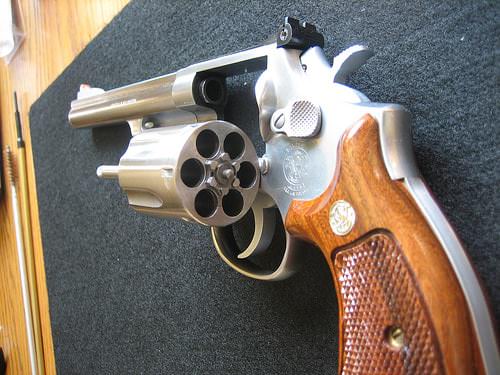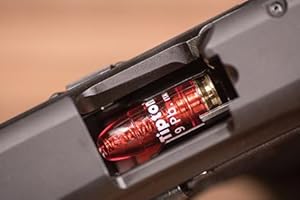Many who are new to firearms often ask this question. well heres an answer!
Dry practice – practicing shooting techniques without using live ammunition – is an excellent way to strengthen the basic skills of good marksmanship. You will notice that I am using the term “Dry Practice,” instead of “Dry-Fire Practice,” in order to remind us that there is no firing, no loud noise and no bullet holes in stuff that you don’t want bullet holes in, when dry practice is done correctly and safely.

All dry practice should begin by unloading the firearm. Check your gun several times to make sure that there is no ammunition in it. In fact, you should put all of the ammunition for that gun in another room. During a dry practice session, you simply can’t check your gun often enough to make sure it is unloaded. Practice sessions don’t have to run very long – 10 to 15 minutes is plenty of time to focus on your shooting skills.
While dry practice is most often associated with the personal-defense gun, it is really a good form of practice for any of the shooting disciplines. The rifle hunter can practice his field positions and basic marksmanship skills just like the defensive shooter may practice his pistol presentation. In fact, I even use dry practice to improve my ability to smoothly mount my shotgun for the bird-hunting season.

One thing to keep in mind is that some guns should not have their triggers snapped on an empty chamber because doing so could damage the firing pin. Rimfire guns are particularly susceptible to this because the firing pin must hit the rim of the cartridge in order to detonate it; lacking a cartridge, the pin will strike the steel chamber and damage to the pin could result. Older styles of single-action revolvers, such as the ones cowboy action shooters use, may also be damaged by snapping the gun on an empty chamber.
This is one reason that I like to have dummy ammunition for all of my guns. I use them during my dry practice sessions. Not only will dummy ammunition help protect your gun, but it can also give you practice in developing ways to reload that gun more quickly and smoothly. Again, reloading is often thought of as a part of defensive shooting, but it is just as critical for the rifle hunter and shotgunner.

Dummy ammunition is made for virtually every common caliber and gauge, including the rimfire .22s and .17s. Check for dummy ammunition at your local gun store, or go online to Brownells for a complete selection.. Dummy ammo is not expensive and it will go a long way towards preventing damage to a valuable firearm.
With these winter months coming on, it is a good idea to establish a regular dry practice session. Three to four times a week is probably plenty to time to devote. Work on your basics of sight picture, trigger squeeze and breath control. Work on your hunting field positions. In fact, you can work on just about anything that you think will improve your shooting skills. The key is to do it safely. We keep our guns safe by using dummy ammo. We keep our home and family safe by making sure that the gun we are practicing with is completely empty of live ammunition and that the live ammunition is safely put up, some distance away.
Just remember…your shooting…


